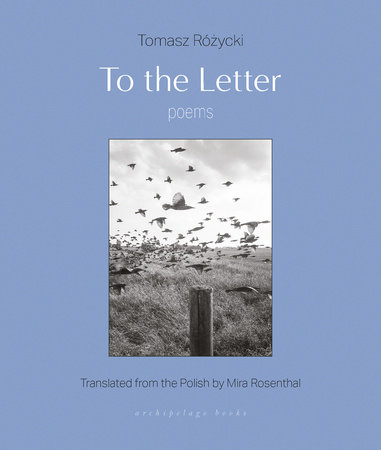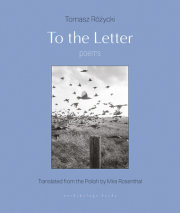1. Meadow How did this happen, us going crazy together,
and now we’re lying in this trampled grass
that buzzes and hums? Around us the massive
body of the world turns, this era’s screams and laughter,
a jet divides the emptiness in squares,
our winged children circle high above,
and with your hand you shift the clouds. It’s clear
till Sunday, then a front is coming. How did love
poison us with verdant venom, how did we end up
going crazy together, lying in dense grass, high
on each other—and what’s become of time, that hangman
with his tools: chains, digits, numbers?
A pair of stupid fools: one sound, two letters.
It was you I chose, and oh so selflessly they warned
that you will make me lose it. The perfume
of acacias in bloom is all I have as an excuse.
Copyright © 2024 by Tomasz Ro´z?ycki. All rights reserved. No part of this excerpt may be reproduced or reprinted without permission in writing from the publisher.








